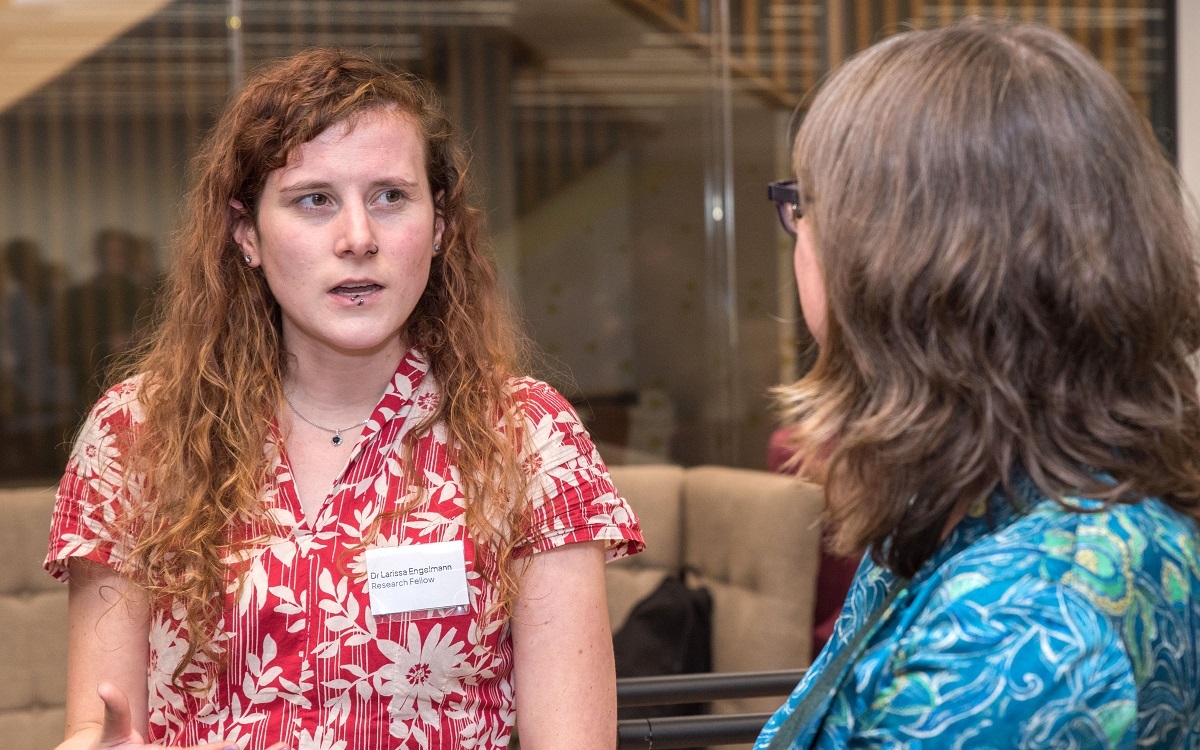Researchers have shared emerging findings from a study that aims to develop ways to prevent Online Child Sexual Victimisation (OCSV).
29 November 2023
Speaking at the Scottish International Policing Conference today (29 November), Dr Larissa Engelmann and Dr Christine A. Weirich reported on an ESRC Vulnerability & Policing Futures Research Centre project that seeks to work with local communities in Blackpool, UK, to improve resilience to OCSV.
Feedback from key local stakeholders, including children and parents, suggests that there needs to be a better understanding of children’s online experiences and the risks they face. The researchers talked about the importance of working more closely with local communities. They said that doing this can help to identify ways to prevent, report, record and respond to different forms of OCSV consistently.
The Co-designing Community Resilience to Online Child Sexual Victimisation project is one of several Centre studies that examine problems prevalent in policing vulnerability.
The project aims to:
- understand how public sector organisations, voluntary groups and the public – particularly parents and children – identify and address OCSV in Blackpool;
- identify how the police can best work with others to anticipate, respond to and prevent OCSV;
- and co-produce a locally-based online child sexual abuse quality standards tool to help address and prevent OCSV.
Dr Larissa Engelmann said, “An established co-production team in Blackpool provided an excellent starting point for us to engage with local stakeholders and provides important structures to take this work forward to further develop local practice to protect and support young people and parents.
“Going forward, we hope the tool we produce will provide valuable insights into best practice in preventing OCSV for different areas across the UK and internationally.”
The OCSV talk was one of several in a session that focused on prevention and good examples of wellbeing and safety initiatives. Other session themes included:
- Partnerships
- Interventions
- Minoritised groups
- Victim/survivor voices and experiences
- Public confidence and legitimacy
Policing of sex work – sex work liaison officers
In addition to the Online Child Sexual Victimisation project talk, Centre Deputy Director Dr Kate Brown spoke about previous research on sex work policing conducted with Professor Sharon Grace (also Vulnerability & Policing Futures Research Centre and the University of York) and Dr Scarlett Redman (Open University).
Dr Brown shared findings from a project that looked at the role of a Sex Work Liaison Officer (SWLO) in a large metropolitan police force in the North of England.
The study showed that the SWLO role was highly valued by sex workers. It built trust between sex workers and the police and improved investigations of crimes against sex workers.
The project also underlined risks for sex workers in this model, and provided insights into how these can be managed to promote sex worker safety.
Dr Brown also introduced a SWLO role descriptor that was co-produced based on the project’s findings. The role descriptor supports police forces looking to embed ‘best practice’ in similar roles.
“Edinburgh was one of the first cities in the UK to have a designated SWLO role as part of harm reduction policing in the 1980s and 90s, so I’m really pleased to be part of this conference to share learning from current best practice models and hear more about international developments,” said Dr Kate Brown.
The Scottish International Policing Conference took place in Edinburgh and was organised by the Scottish Institute for Policing Research.
Links
- Co-designing Community Resilience to Online Child Sexual Victimisation
- Policing vulnerability: learning from the Sex Worker Liaison Officer role in West Yorkshire Police
- View Dr Larissa Engelmann’s profile
- View Dr Christine A. Weirich’s profile
- View Dr Kate Brown’s profile
- Scottish International Policing Conference – Community Well-Being & Safety: Building Partnerships in Policing

